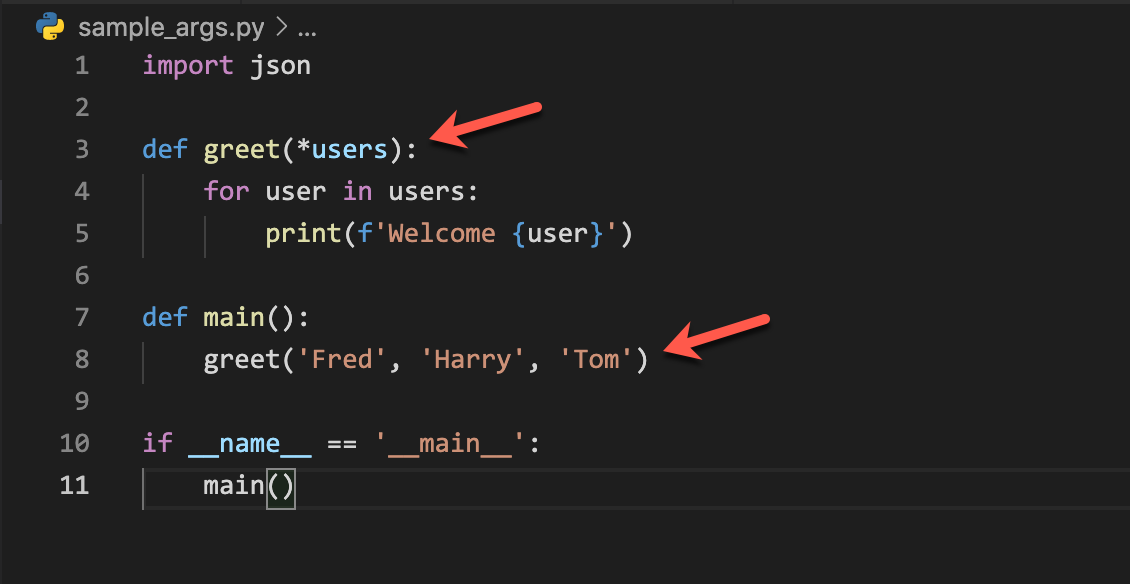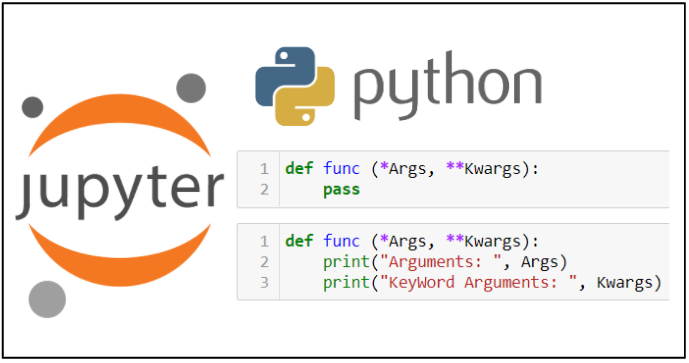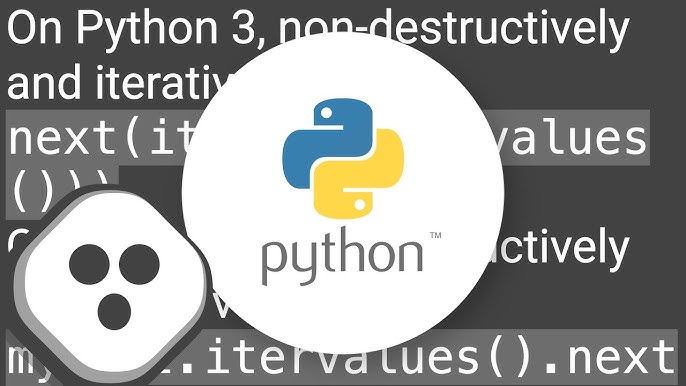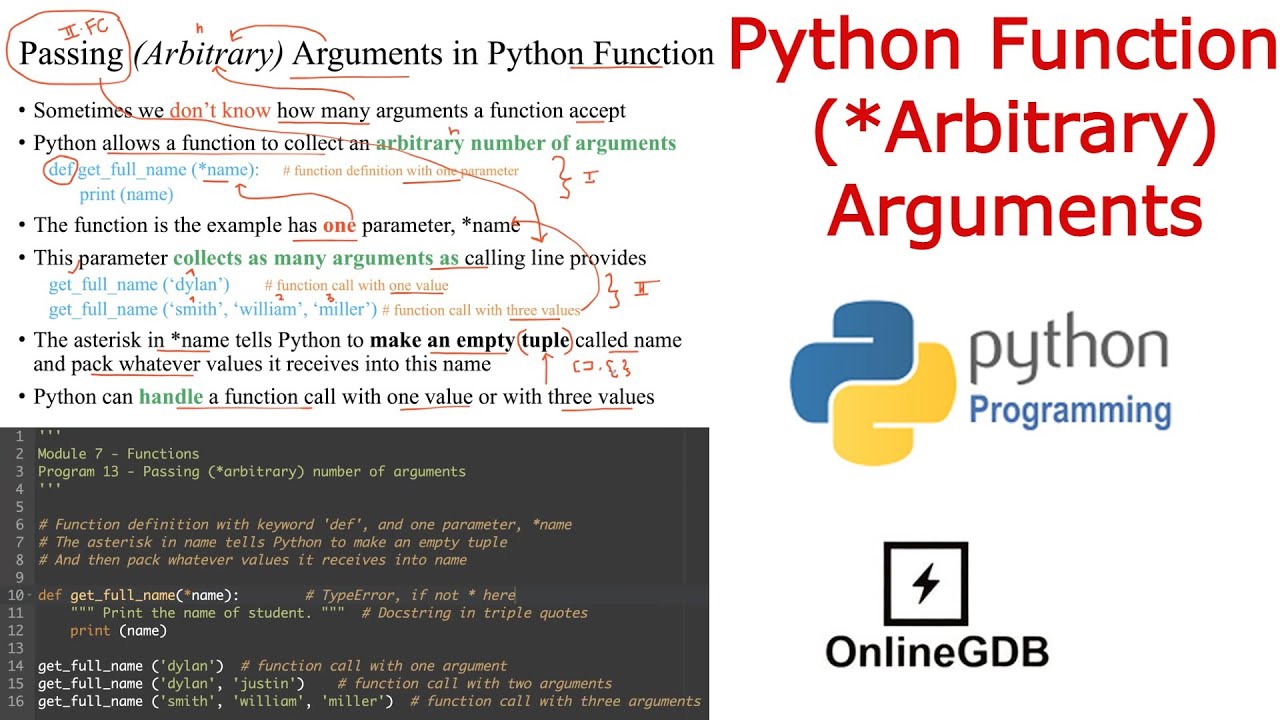What is * args in Python?
What is * args in Python?

I'm happy to help!
In Python, *args is a syntax used to capture any number of non-keyworded arguments passed into a function. This allows you to write functions that can take variable numbers of arguments.
The syntax *args is used in the function definition and indicates that the function accepts an arbitrary number of arguments. Inside the function, you can access these arguments using the args tuple.
For example:

def my_function(*args):
for arg in args:
print(arg)
my_function("hello", "world", 1, 2, 3)
When calling my_function, you can pass any number of arguments, and they will be captured by the *args syntax. Inside the function, you can loop over the args tuple to access each argument.
Here are a few key things to note about *args:
*args syntax only captures non-keyworded arguments. If you want to capture both keyworded and non-keyworded arguments, you can use **kwargs in addition to *args. We'll get into this more below. Tuple access: Inside the function, you can access the args tuple using standard tuple indexing (e.g., args[0], args[-1]). You can also loop over the tuple using a for loop or convert it to a list using the list() function. Any number of arguments: The beauty of *args is that you can pass any number of arguments, including zero! If no arguments are passed, args will be an empty tuple.
What about **kwargs?
You've likely heard that in Python, there's also a syntax called **kwargs. What does this do?
The **kwargs syntax captures any number of keyworded arguments (i.e., key-value pairs). This allows you to write functions that can take variable numbers of both non-keyworded and keyworded arguments.
Here's an example:
def my_function(**kwargs):
for key, value in kwargs.items():
print(f"{key}: {value}")
my_function(name="John", age=30, country="USA")
In this case, you're passing three keyworded arguments: name, age, and country. Inside the function, you can loop over the kwargs dictionary to access each key-value pair.
Mixing both!
What if you want your function to accept both non-keyworded and keyworded arguments? You can use both *args and **kwargs in the same function!
Here's an example:
def my_function(*args, **kwargs):
for arg in args:
print(arg)
for key, value in kwargs.items():
print(f"{key}: {value}")
my_function("hello", "world", name="John", age=30)
Now you're passing both non-keyworded and keyworded arguments. The *args captures the non-keyworded arguments ("hello" and "world"), while the **kwargs captures the keyworded arguments (name and age). You can loop over both using standard syntax.
That's a brief overview of *args in Python! I hope this helps you better understand how to use this powerful feature in your own code.
What is arbitrary element in Python?

I'll respond in English as per your request.

Arbitrary elements are a concept in programming that refers to the ability of a function or operation to return any value, not limited to specific predetermined values or types. This concept is particularly relevant in Python, where arbitrary element manipulation can be achieved through various means, including built-in functions and libraries.
One common example of an arbitrary element in Python is the random module, which provides a way to generate random numbers. When using the random.randint(a, b) function, for instance, you can specify any two integers a and b, and the function will return a random integer between these values. The value returned is arbitrary because it's randomly selected from within the specified range.
Arbitrary elements can also be manipulated through string manipulation. For example, the random.choice() function allows you to pick an element from a list at random. You can use this function in combination with other string methods to manipulate text data arbitrarily.
Another way to introduce arbitrary elements is through dictionary manipulation. Python's built-in dictionaries (dict objects) allow for arbitrary key-value pairs. You can dynamically generate keys and values, effectively creating arbitrary elements that can be used within your program.
In more advanced applications, arbitrary element manipulation can be achieved using abstract algebraic data structures like linked lists or trees. These data structures provide a way to create dynamic lists of nodes that can contain arbitrary elements (e.g., integers, strings, objects). Such constructs enable the creation of complex algorithms and data processing operations that involve arbitrary element manipulation.
Arbitrary elements are particularly useful when dealing with real-world problems that require flexibility in handling various inputs. For instance, you might need to create a program that accepts arbitrary input values, processes them according to certain rules or patterns, and returns results based on these processed values. Python's dynamic typing system makes it an ideal language for working with arbitrary elements.
To illustrate this concept further, consider the following example: you are building a text-based game where players can choose their difficulty level from predefined levels (e.g., Easy, Medium, Hard). In Python, you could define a function get_difficulty() that uses random numbers to determine the player's selected difficulty. This function would return an arbitrary value (one of three predefined difficulty levels) based on a random selection.
In summary, arbitrary elements in Python refer to the ability to create or manipulate values that are not predetermined or limited by specific data types or structures. This concept is essential for creating flexible and dynamic programs that can handle various inputs and processing requirements, making Python an ideal language for this type of manipulation.





























